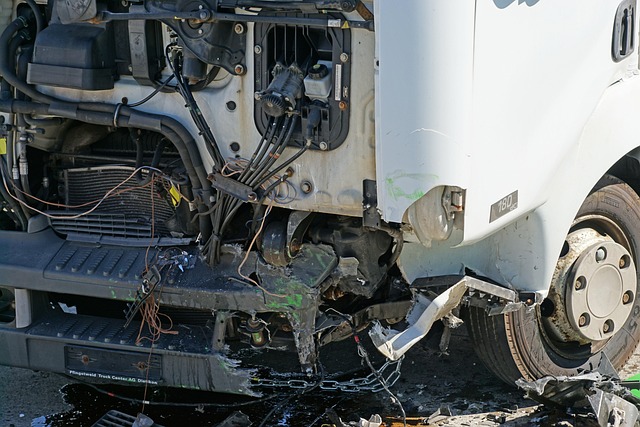General Liability coverage is a critical risk management tool for businesses, offering protection against diverse claims including personal injury, property damage, and medical expenses. Business owners should understand key elements like limits of liability, exclusions, and claim filing processes to make strategic insurance decisions. By customizing policies to specific needs and managing expectations regarding exclusions, businesses can ensure comprehensive protection while avoiding unnecessary costs. General Liability policies safeguard against unforeseen events, providing financial security, legal defense, and peace of mind. Proper handling of claims under this coverage protects a company's reputation and outcome.
“Uncover the essence of Business General Liability Coverage, your shield against unpredictable risks. This comprehensive guide explores the intricate details, from policy components to risk assessment, ensuring every business owner understands their protections. Learn who needs this coverage and why it’s vital. Discover common exclusions and strategies to maximize your defense. By understanding General Liability, you empower yourself to navigate claims with confidence, securing your business’s future.”
Understanding Business General Liability Coverage: A Comprehensive Overview

Business General Liability Coverage is a crucial aspect of risk management for any organisation. It offers protection against a wide range of claims, including personal and advertising injury, property damage, and medical expenses arising from your business operations. This comprehensive coverage ensures that if your company faces unexpected legal issues or accidents, you have financial security to navigate these challenges.
Understanding General Liability involves grasping key components like limits of liability, exclusions, and the process of filing a claim. Knowing these details empowers business owners to make informed decisions about their risk exposure. By selecting appropriate coverage levels and reviewing policy exclusions, businesses can tailor their insurance to fit specific needs, ensuring they are adequately protected without overspending on unnecessary aspects.
Key Components of General Liability Insurance Policies

General Liability insurance policies are designed to protect businesses from a variety of risks and claims that can arise in the course of their operations. The key components of these policies typically include three main coverages: property damage, bodily injury, and personal and advertising injury. Property damage liability covers any loss or destruction of physical property caused by the insured’s operations, while bodily injury coverage provides protection for medical expenses and other related costs when a person is injured on the insured’s premises or as a result of their products or services.
Personal and advertising injury coverage is designed to protect businesses from claims related to slander, libel, false advertising, and other forms of reputational damage. This component also includes coverage for products that cause harm after they leave the hands of the manufacturer, known as “product liability.” Understanding these core elements is crucial when evaluating General Liability policies to ensure comprehensive protection for your business against potential risks and liabilities.
Who Needs General Liability Coverage and Why?

Every business, regardless of its size or industry, faces potential risks and liabilities. General Liability Coverage is an essential shield for businesses to protect themselves against these unforeseen events. It offers financial protection in case of claims related to bodily injury, property damage, or personal and advertising injuries caused by operations within the business.
Whether you’re a retail store, a service-based company, or even a sole proprietorship, there’s always a chance of someone getting hurt on your premises or suffering damages due to your products or services. General Liability Coverage ensures that your business is financially secure and capable of covering legal fees, settlement costs, and judgments if such incidents occur. It’s an investment in peace of mind, providing the assurance that your business is prepared for any unexpected liability issues.
Common Exclusions to Watch Out For

When reviewing your General Liability Coverage, it’s crucial to be aware of common exclusions that could significantly impact your protection. These exclude situations where the policyholder is held liable for certain types of losses or damages. For instance, many policies won’t cover claims arising from intentional acts, such as assault or property damage intentionally caused. Also, exclusions often include liabilities stemming from workers’ compensation or unemployment benefits, and damage to property owned by, rented to, or in the care of the insured.
Another area to watch is the handling of products and completed operations. General Liability policies typically exclude injuries or damages resulting from defective products or work done on a project. This highlights the importance of thorough product testing and ensuring clear contracts with subcontractors or vendors. Remember, understanding these exclusions is vital to managing expectations and securing adequate protection under your General Liability Coverage.
Assessing Risk: What Factors Influence Premium Pricing?

Assessing risk is a critical aspect of determining premiums for General Liability coverage. Insurers consider various factors to gauge the potential exposure and likelihood of claims against a business. Key influences on premium pricing include the nature of operations, industry standards, and historical claim data. Businesses with high-risk activities or those in industries with frequent lawsuits may face higher premiums due to increased chances of liability. For instance, construction sites carry risks of property damage and worker injuries, leading to substantial claims if incidents occur.
Insurers also examine a company’s financial health and risk management practices. Stable businesses with robust safety measures and thorough training programs can often secure more favorable rates. Conversely, companies with poor loss control or inadequate insurance coverage may face higher premiums as insurers mitigate potential risks. Understanding these factors is essential for businesses aiming to obtain competitive General Liability quotes and ensure adequate protection against unforeseen liabilities.
Claims Handling and Defense: Your Rights and Responsibilities

When a claim is made against your business, how it’s handled can significantly impact the outcome and your company’s reputation. Under General Liability Coverage, your insurance provider is obligated to defend you against these claims, which includes legal fees and court costs. This means they’ll assign a lawyer to represent you and fight on your behalf. However, your role isn’t just passive; you should cooperate fully with your insurer and provide all relevant information and documents.
As the policyholder, you have rights and responsibilities. You have the right to be kept informed about the progress of your case and any settlements or judgments made. At the same time, you’re expected to notify your insurer promptly of any claims, even those that appear minor. Timely notification is crucial as it ensures a smooth claims process and could prevent policy exclusions.
Strategies for Maximizing Protection: Tips for Business Owners

